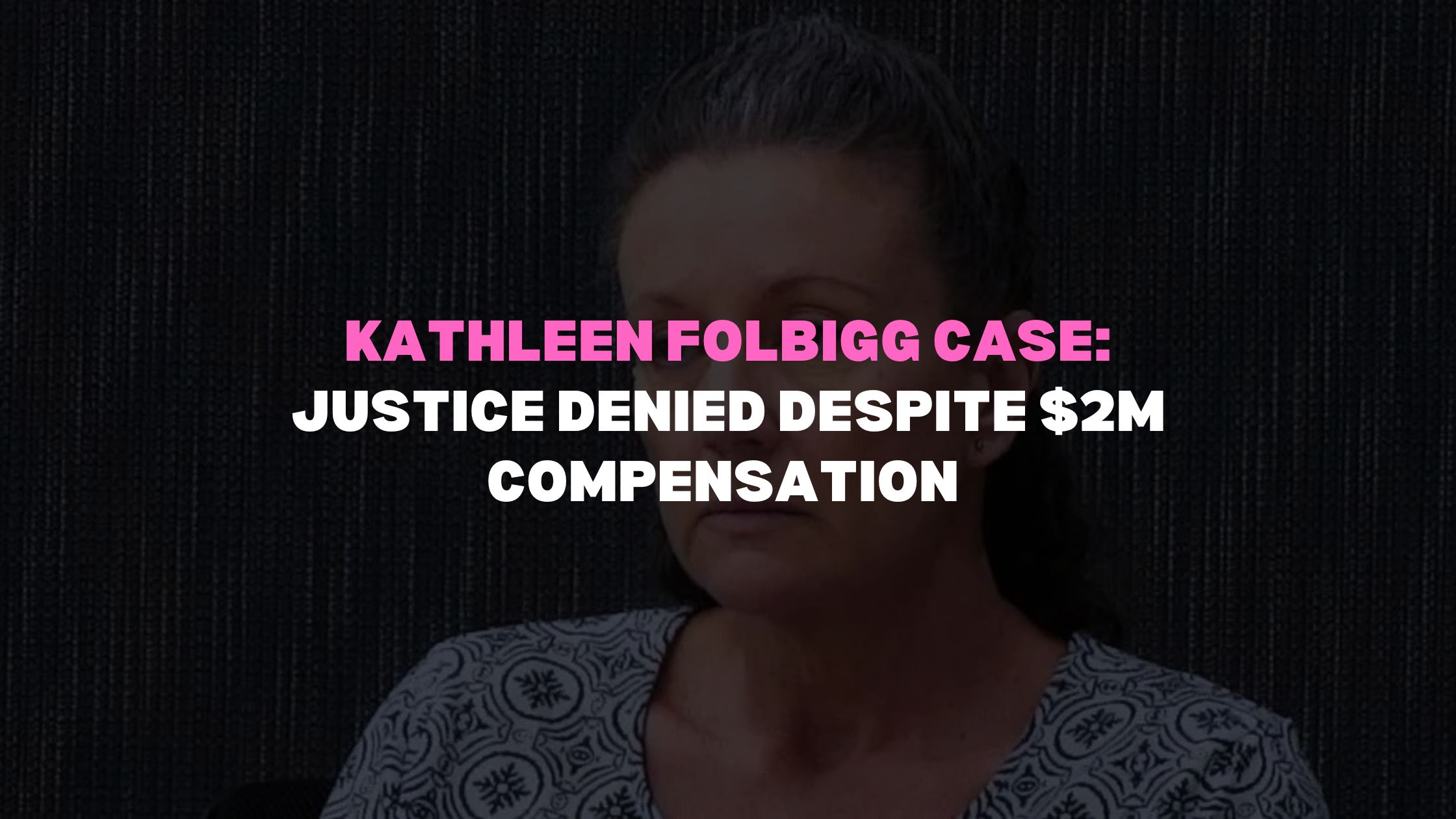Kathleen Folbigg: Two Decades Stolen, and Only $2 Million Returned
Freedom restored doesn’t always mean justice served. The case of Kathleen Folbigg proves just that.
In 2003, Kathleen Folbigg was convicted of murdering three of her infant children and the manslaughter of a fourth. Her name became synonymous with evil. She was branded Australia’s worst female serial killer, her face splashed across tabloids. For twenty years, she lived behind bars, vilified by the public and the press. But in 2023, her name was cleared. And in 2025, she received a $2 million ex gratia payment from the NSW Government. But what does that payment really represent? Closure? Compensation? Or just a convenient bookend to a story the system would rather forget?
A Conviction Built on Flawed Science and Assumptions
Folbigg’s wrongful conviction was rooted in outdated science and deeply flawed legal reasoning. Central to the Crown’s case was the discredited “Meadow’s Law,” a now-debunked theory suggesting that multiple child deaths in the same family are almost certainly homicides. This was used to dismiss natural causes, including genetic conditions, without sufficient investigation.
At the time, forensic experts failed to meet the standard established in Makita v Sprowles [2001] NSWCA 305, which demands expert evidence be logically probative and based on sound methodology. Instead, they leaned heavily on circumstantial interpretations and psychological assumptions, including the mischaracterisation of Folbigg’s private diary entries as confessions. Modern trauma psychology now recognises such writing as typical expressions of grief, not guilt.
Breakthroughs in genetic science ultimately exposed the truth. An extremely rare mutation, CALM2 G114R, was identified in two of Folbigg’s children. This mutation is now known to cause sudden cardiac arrest in infants. A 2023 judicial review, bolstered by international medical consensus, led to her pardon. Later that year, her conviction was formally quashed by the NSW Court of Criminal Appeal.
A Life on Hold
Since her release, Folbigg has described her life as being “still on hold” while she fights for proper compensation. Basic tasks, securing rental housing, adjusting to the cost of living in 2025, and re-entering a world transformed over two decades, have been incredibly difficult. Her lawyer, Rhanee Rego, said the drawn-out process has been “really disheartening,” noting that Folbigg just wants the matter resolved so she can rebuild her life.
Ex Gratia, But Not Exonerated?
In August 2025, the NSW Government awarded Folbigg a $2 million ex gratia payment. But let’s break that down: $100,000 for each year she spent wrongfully imprisoned. No restitution for lost income. No damages for psychological harm. No accounting for the vilification she endured.
Her legal team has called the sum “profoundly unfair and unjust,” describing it as a “moral affront, woefully inadequate and ethically indefensible”. Legal experts had estimated Folbigg’s payout could have been upwards of $10 million, potentially even reaching $20 million. By contrast, Lindy Chamberlain received $1.3 million after just three years behind bars in the 1980s.
The Politics of Delay
Part of the frustration comes from how slowly the government has handled the process. Folbigg’s application for compensation sat “under active consideration” for more than a year, with no progress reported. Requests to meet with Premier Chris Minns were denied, with the Premier saying the matter was solely for Attorney-General Michael Daley to determine. Meanwhile, Folbigg remained in limbo, waiting for the state to decide how much her lost decades were worth.
Can You Sue for Wrongful Conviction in NSW?
Unlike other jurisdictions, Australia lacks a formal legislative framework for compensating wrongful convictions. Ex gratia payments are discretionary, not enforceable. Victims must either accept what is offered or undertake lengthy and traumatic civil litigation.
This leaves people like Folbigg with an impossible choice: accept a nominal payout or fight again, this time against the very state that took everything.
Under tort law, particularly claims for malicious prosecution or misfeasance in public office, further compensation may be sought. But these claims are notoriously hard to prove and come with significant emotional and financial costs. Moreover, as Green & Associates has seen in numerous civil disputes, even a strong moral claim doesn’t guarantee a legal win.
When the System Gets It Wrong
Kathleen Folbigg lost more than two decades of her life. But she also lost her children, her reputation, her mental health, and her sense of security. The trauma doesn’t stop with release. It lingers. And so far, the system has offered little to ensure it doesn’t happen again.
There is growing public demand for a statutory scheme for compensation, modelled after systems in Canada or the UK. These frameworks provide clearer guidelines, transparency, and fairness for victims of wrongful convictions.
What Needs to Change?
- Independent forensic oversight: Scientific evidence must meet strict admissibility standards, and outdated theories must be retired
- Legislated compensation schemes: Victims should not rely on political goodwill for justice.
- Psychological support and rehabilitation: Release is not the end of trauma, it’s the beginning of a new, uncertain chapter.
- Judicial training: Judges and prosecutors must be trained to interpret complex scientific evidence responsibly.
Final Thoughts
The law demands that justice be blind, but when it turns a blind eye to its own mistakes, we all lose. Wrongful convictions are rare, but not impossible
If you or someone you know has suffered a miscarriage of justice, our team at Green & Associates can help navigate appeals, pardons, and civil remedies. Contact us today for strategic, compassionate legal advice.




